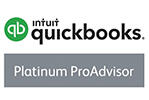New PAYE procedure being overlooked
If you pay foreign employees or those who work abroad, you might need to take steps immediately because of new tax rules. What’s the full story?

Accountancy and tax organisations are warning employers that they are at risk of falling foul of HMRC if they don’t follow the new tax residency rules that took effect in April 2025. The changed rules are a side effect to the overhaul of the UK taxation of non-UK individuals, known as the “foreign income and gains” (FIG) regime. The rules also affect UK individuals paid by UK employees for work they do abroad.
Tax only UK earnings. If one of your employees works both in and outside of the UK, before April 2025 you could have asked HMRC for permission to only apply PAYE to salary relating to their UK work. This was called “s.690 relief” . This relief came to an end with the introduction of FIG.
New process. Since April 2025 employers should not assume that employees who qualified for s.690 relief will do so under the FIG regime. Because of this there’s a new mandatory process for employers to follow if they want to limit PAYE to operate the new version of s.690 relief.
The good news is that the new process is all online and can be completed by you or your accountant in very little time and it has immediate effect. This means that you don’t need to wait for HMRC’s permission before limiting PAYE to UK-generated earnings.
The new process must be followed for employees for whom you have previously received permission from HMRC under the old rules. The new procedure only relates to PAYE tax. It doesn’t affect your or your employees’ NI contributions if they are foreign nationals. There are separate rules for these
Related Topics
-
HMRC checks directors’ loans are paid up
HMRC is writing to agents to check corporation tax returns for previous years are correct as it used to be possible to add a future date for an anticipated loan repayment. What’s the issue and what should you do if your advisor receives a letter?
-
Working from home tax relief scrapped in Budget
Employees who are required to work from home are currently able to claim tax relief at a flat rate of £6 per week. That's changing from 6 April 2026. What's the full story?
-
Government quietly confirms change to key tax deduction
The headlines for individuals at last week's Budget were all about the income tax hikes. But the small print contained confirmation of another important change. What’s the full story?



 This website uses both its own and third-party cookies to analyze our services and navigation on our website in order to improve its contents (analytical purposes: measure visits and sources of web traffic). The legal basis is the consent of the user, except in the case of basic cookies, which are essential to navigate this website.
This website uses both its own and third-party cookies to analyze our services and navigation on our website in order to improve its contents (analytical purposes: measure visits and sources of web traffic). The legal basis is the consent of the user, except in the case of basic cookies, which are essential to navigate this website.